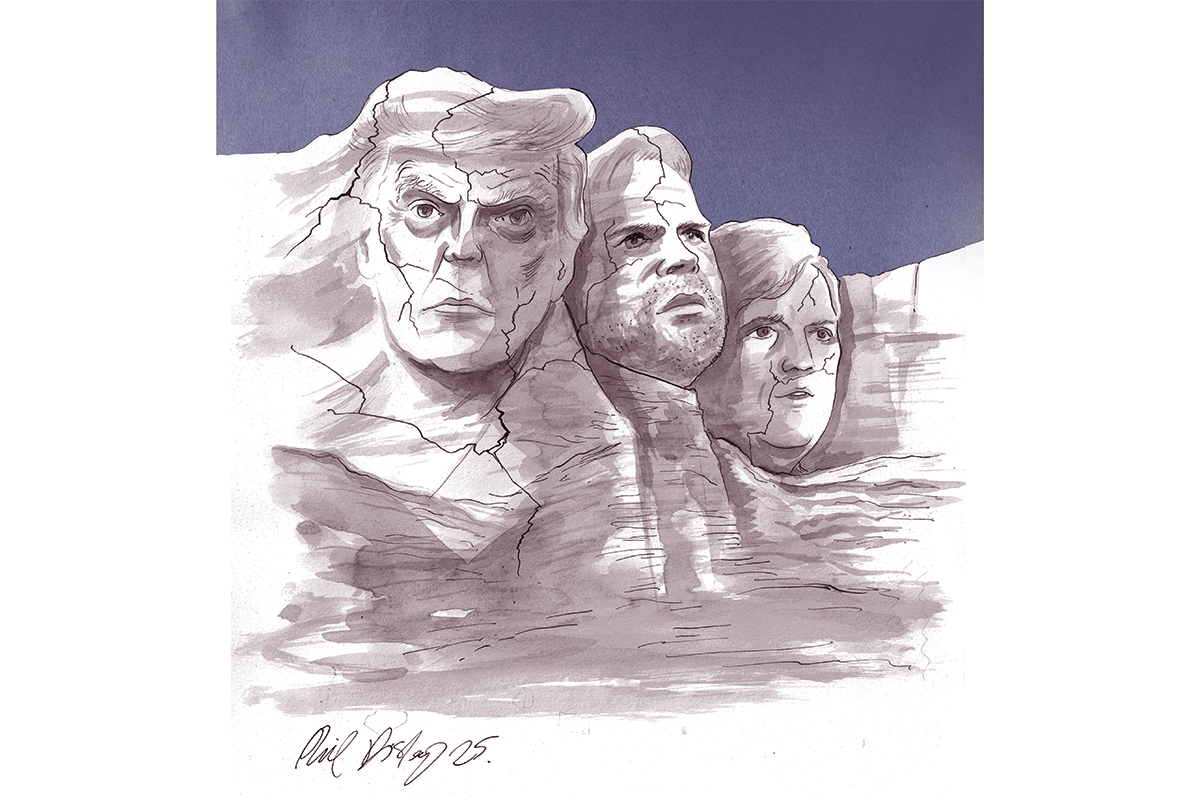How wrong can you be? About as wrong as I was about the character of the midterm elections. I thought there would be a red wave, fueled in part by high-octane orange fuel. Clearly I was wrong.
It is no consolation to know that I was hardly alone in my assumptions. Nor is it much consolation to hear from Donald Trump that it was a “GREAT EVENING” because there were “174 wins and nine losses.”
I didn’t check his math, but even if accurate it is obvious that there was no red wave. Several of his high-profile candidates lost, most conspicuously Mehmet Oz in Pennsylvania. The fact that he lost to a man who is ostentatiously a mental incompetent added insult to injury. The most that John Fetterman will be able to do is show up to the Senate in his hoodie and vote “yea” or “nay” on the orders of his handlers.
A friend suggests that perhaps the Democratic strategy is to let Fetterman assume office and then have him resign, leaving Josh Shapiro, who won the gubernatorial race handily against Trump-endorsed Doug Mastriano, appoint a mentally competent successor. Rumors suggest that Scranton mayor Paige Cognetti is the likely replacement. That scenario appeals to the Machiavellian in me, but who knows if it is in the offing.
As I write, the Senate is still up for grabs. Probably, the GOP will winkle out a 51-49 victory, fifty-two if Blake Masters wins in Arizona, but that is a far cry from the fifty-four or even fifty-five seats that I predicted.
Kari Lake’s fortunes are also up for grabs. As I write, it seems that she might squeak by, but I thought that she would crush Katie Hobbs. She didn’t
What does it all mean? One thing is that many widely held assumptions about the course of elections are wrong or at least inoperative in the current fraught environment.
I had assumed that with the president underwater, inflation raging, interest rates rises, thousands upon thousands of illegal immigrants pouring over our southern border and crime spiking that Republicans would have the advantage. How could it be otherwise?
Some critics say that Trump was the issue, that the Democrats made “Trump is on the ballot” their war cry. They did do that, and of course they also shouted “abortion” every chance they got. But both issues had to cut both ways. Trump has a very extensive base and the meme that “Trump is on the ballot” had to have helped as well as hindered. As for abortion, while some candidates — Tim Michels, for example — made it a centerpiece of their campaign, most did not and, besides, late-term abortion is no longer a winning battle cry for Democrats, if it ever was.
How then to explain what happened? I frankly do not know. Robert Bork, quoting Justice Antonin Scalia, titled one of his books A Country I Do Not Recognize. Perhaps that is a starting point. Perhaps Americans no longer care about prosperity, border integrity, physical safety or nurturing traditional bourgeois virtues. Perhaps they have signed up en masse for the woke agenda of political correctness and socialist conformity. I do not know.
In 2010, Barack Obama noted, Republicans delivered Democrats a “shellacking” in the midterms. More than sixty House seats changed party affiliation and there was the widespread assumption that the GOP delivered a serious rebuke to the Democrats. There was nothing like that in this election.
As of this writing, it still looks like the GOP will narrowly take both houses. But there is no point in denying that what was to have been a huge red wave just wasn’t. It could have been worse, it is true, but very little can be built on such consolation prizes.

























